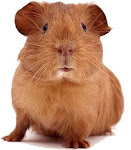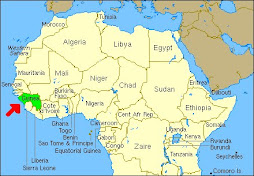In 1964 Mandela and 12 of his colleagues were charged with acts of sabotage and planning an armed invasion of South Africa. The potential punishment for these crimes was death by hanging. Instead of testifying, Mandela made a four-hour statement from the dock, outlining the history of the African National Congress (ANC), their roles in the anti-apartheid struggle, and how they had gotten to the point where they were, causing them to make the decisions they made, for which they were indicted. Mandela’s intention was “to put the state on trial” for its apartheid policies and discriminatory treatment of black South Africans by the ruling white minority. Although Mandela did not deny the charges of sabotage, he did oppose the charge of planning an armed invasion, which the ANC was not yet considering. The accused and their lawyers had mentally prepared themselves and were expecting a death sentence. Bram Fishcher, Mandela’s lawyer, urged him not to read his closing paragraph, as follows:
During my lifetime I have dedicated myself to this struggle of the African people. I have fought against white domination, and I have fought against black domination. I have cherished the ideal of a democratic and free society in which all persons live together in harmony and with equal opportunities. It is an ideal which I hope to live for and to achieve. But if needs be, it is an ideal for which I am prepared to die.
This was mind-blowing to me, because people my age mostly only know the end of the story—that Mandela is a freedom fighter who brought about necessary changes. It’s stunning to realize that he was only one judgment away from death—and how different the course of history could have been.
Mandela’s thoughts on his lawyer Bram Fischer, also struck me:
As an Afrikaner whose conscience forced him to reject his own heritage and be ostracized by his own people, [Bram] showed a level of courage and sacrifice that was in a class by itself. I fought only against injustice, not my own people.
Bram was a purist, and after the Rivonia trial, he decided he could best serve the struggle by going underground and living the life of an outlaw… In many ways, Bram Fischer, the grandson of the Prime Minister of the Orange River Colony, had made the greatest sacrifice of all. No matter what I suffered in my pursuit of freedom, I always took strength from the fact that I was fighting with and for my own people. Bram was a free man who fought against his own people to ensure the freedom of others.
One thing I found notable about Mandela was his ability to know when to negotiate and when to stand his ground, and the fact that he rarely lost his cool. A prison guard on Robben Island once insulted his wife, and on that rare occasion Mandela lost it. He didn’t physically assault the guard, but gave him a good round of verbal abuse. Later, reflecting on that incident:
Even though I had silenced Prins, he had caused me to violate my self-control and I consider that a defeat at the hands of my opponent.
Regarding a film he saw while in prison on Robben Island, commenting on the leadership styles of those he admired:
I was particularly affected by a documentary we saw about the great naval battles of World War II, which showed newsreel footage of the sinking of the H.M.S. Prince of Wales by the Japanese. What moved me most was the brief image of Winston Churchill weeping when he heard of the news of the loss of the British vessel. The image stayed in my memory a long time, and demonstrated to me that there are times when a leader can show sorrow in public, and that it will not diminish him in the eyes of his people.
When I think I’m having a bad day…
Prison was a kind of crucible that tested a man’s character. Some men, under the pressure of incarceration, showed true mettle, while others revealed themselves as less than what they had appeared to be.
In their later years on Robben Island, the prisoners would put on plays, including Sophocles’ Antigone:
I only performed in a few dramas, but I had one memorable role, that of Creon, an elderly king fighting a civil war over the throne of his beloved city-state. At the outset of the play, Creon is sincere and patriotic, and there is wisdom in his early speeches when he suggests that experience is the foundation of leadership and that obligations to the people take precedence over loyalty to an individual.Of course you cannot know a man completely,
His character, his principles, sense of judgment, not till he’s shown his colors, ruling the people, making laws. Experience, that’s the test.
But Creon deals with his enemies mercilessly… He has decreed that the body of Polynices, Antigone’s brother, who had rebelled against the city, does not deserve a proper burial. Antigone rebels, on the grounds that there is a higher law than that of the state. Creon will not listen to Antigone, nor does he listen to anyone but his inner demons. His inflexibility and blindness ill become a leader, for a leader must temper justice with mercy. It was Antigone who symbolized the struggle; she was, in her own way, a freedom fighter, for she defied the law on the grounds that it was unjust.
I’ve joked that I do a prison routine workout sometimes when it’s difficult to exercise outside. But in addition to being a great leader and activist, Nelson could have totally kicked my ass.
I have always believed that exercise is not only a key to physical health, but to peace of mind. Many times in the old days I unleashed my anger and frustration on a punching bag rather than a policeman. Exercise dissipates tension, and tension is the enemy of serenity. I found that I worked better and thought more clearly when I was in good physical condition, and so training became one of the inflexible disciplines of my life. In prison, having an outlet for one’s frustrations was absolutely essential.
…On Monday through Thursday, I would do stationary running in my cell in the morning for up to forty-five minutes. I would also perform one hundred fingertip push-ups, two hundred sit-ups, fifty deep knee-bends and various other calisthenics.
…I did manage to influence some of my more sedentary colleagues. Exercise was unusual for African men of my age and generation… I know that some of my younger comrades looked at me and said to themselves, “If that old man can do it, why can’t I?” They too began to exercise.
(He wrote that when he was 59!)
Regarding the negotiations process to dismantle the minority rule and apartheid government with then South African President F.W. de Klerk:
I was often asked how could I accept the [Nobel Peace Prize] jointly with Mr. De Klerk after I had criticized him so severely. Although I would not take back my criticisms, I could say that he had made a genuine and indispensable contribution to the peace process. I never sought to undermine Mr. de Klerk, for the practical reason that the weaker he was, the weaker the negotiations process. To make peace with an enemy one must work with that enemy, and that enemy becomes one’s partner.
On fear:
Time and again, I have seen men and women risk and give their lives for an idea. I have seen men stand up to attacks and torture without breaking, showing a strength and resiliency that defies imagination. I learned that courage was not the absence of fear, but the triumph over it. I felt fear myself more times than I can remember, but I hid it behind a mask of boldness. The brave man is not he who does not feel afraid, but he who conquers that fear.
And finally,
No one is born hating another person because of the color of his skin, or his background, or his religion. People must learn to hate, and if they learn to hate, they can be taught to love, for love comes more naturally to the human heart than the opposite. Even of the grimmest of times in prison, when my comrades and I were pushed to our limits, I would see a glimmer of humanity in one of the guards, perhaps just for a second, but it was enough to reassure me and keep me going.
He is a good person to think about when I’m feeling frustrated or challenged. I admire the way he seems to approach his work with both a sense of opportunity and obligation. I found it interesting how extensively he talks about his family, and wonders if he should have been a better son, better father, better husband, been there to bury his mother when she died, or give away his daughter when she was married. He chose to put the needs of the entire nation before the needs of his immediate family, but not without some pain. At the same time, it was the moral support of his wife Winnie that gave him the strength to get through prison. He often said that his family suffered more than he did while he was in prison. His life was defined by the anti-apartheid struggle, and his family came second, even though they were essential.
And now, back to Guinea…
In other news from Conakry… we are going to our posts! I’m thrilled! I head out to Dabola for the first time tomorrow. Due to the political situation and the waiting, I’ll only be there for a total of three months instead of the intended six months, but I’m excited nonetheless to have an opportunity to enjoy the village life. I’m not sure what kind of internet access I’ll have in Dabola, so you might not hear too much from me… but it’s only three months! Til next time, amigos…


















